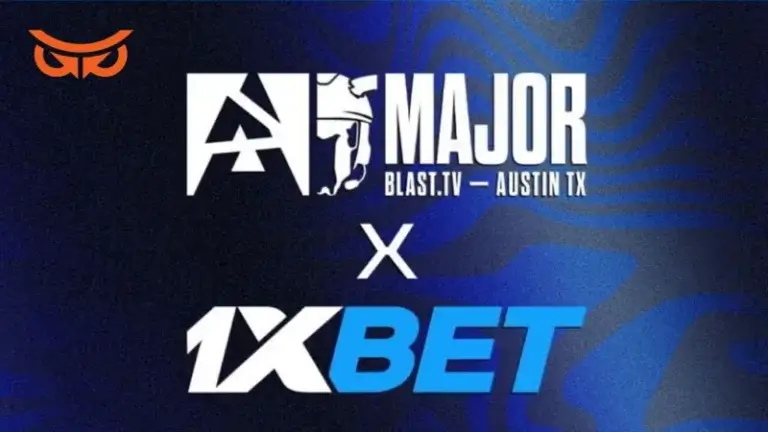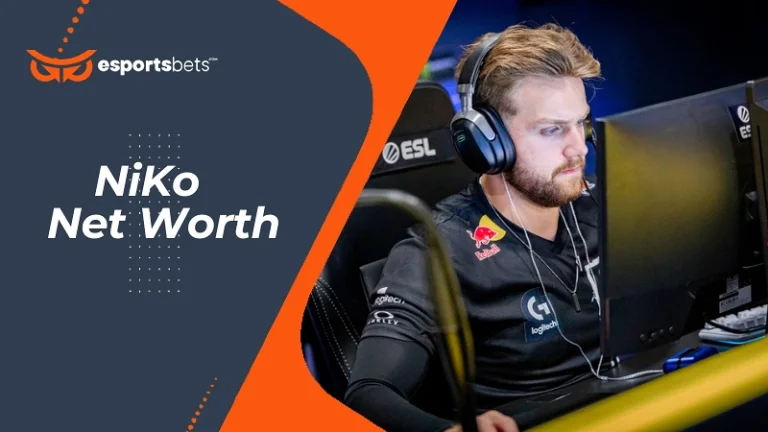The Unstoppable Future of Esports Betting
For many years, esports betting has worked to become an exhilarating and dynamic beast of the industry. Once upon a time, the concept of placing wagers on esports tournaments was laughable, but today, it’s a hugely popular and lucrative market. In fact, some researchers claim that, statistically, esports is well on the way to becoming one of the top five betting markets by volume, joining the likes of soccer, tennis, and the NFL. Today, we’re here to address the future of esports betting – and what a bright future it appears to be.
Since the mid-2010s, the esports industry has grown at a remarkable pace. As gaming has become more accessible and advanced, the number of people actively playing video games around the world has exploded. At the core of the gaming industry sits the concept of competitive gaming, and where there’s a competitive nature, there’s esports. It is estimated that by 2024, there will be approximately 577m esports viewers around the world.
But what do these figures mean to the esports betting industry? How are today’s competitors and bettors shaping the future of esports wagering?
The Evolution of Esports Betting

It can be argued that, currently, esports betting as an industry is still in its infancy. While many of the world’s best bookmakers have hybridized to offer esports betting markets, they’re often rudimentary and unimaginative. However, within the last few years, numerous esports-focused betting sites have emerged, offering unparalleled esports betting experiences. These platforms are driven by the inherently diverse nature of the esports industry, offering odds on almost every competitive title out there.
But, while traditional sports betting markets mostly remain the same, there’s an evolution occurring within the confines of the esports betting industry. For the most part, the future of esports betting is twinned with the future of gaming itself, and as the latter evolves, so too does the former.
For instance, a potentially lucrative and definitely interesting concept to arise in recent years is the idea of the ‘bet-on-yourself’ platform. Now, this isn’t something that a traditional sportsperson, such as a soccer player, for example, could do – it just isn’t within the rules of the sport. However, where esports are concerned, many operators and organisations are attempting to introduce competitors to the idea of placing wagers on themselves, betting against their own performance as a gamer.
Could this be the future of esports betting?
Taking Care of Number One
There’s a staggering amount of growth within esports betting – and this has been a consistent fact for several years. It’s expected that by 2024, the total amount of money wagered on esports matches will have exceeded $16bn on a global scale. In 2021, even in the midst of a global pandemic, the esports industry showed growth in revenue of more than 170%. For esports bettors and esports betting operators, there’s a dramatic amount of money to be made – but how can you make money betting on yourself?

In 2022, the Esports Entertainment Group hosted a first-of-its-kind tournament in Atlantic City. This was a come-one-come-all event played on the Madden NFL platform, and it encouraged esports competitors to actively bet against their own performance. At this tournament, EEG leveraged the LANDuel platform, a progressive esports wagering platform that empowered bettors to place wagers on themselves.
This tournament was quite a success, but it wasn’t the first time that esports players have had the ability to take advantage of a bet-on-yourself product. Betting platform Unikrn, acquired last year by Entain, promoted the UMode, a remote skill-based betting system that utilised an intelligent, AI-driven mechanic. With UMode, players could bet on themselves across a range of titles, such as Fortnite, League of Legends and Call of Duty: Warzone.
Within a relatively short period of time, this concept was mirrored by the likes of Midnite with its CashMode, and PLLAY, a third-party app backed by millionaire-level investors. Elsewhere, platforms like ChallengerMode, Z-League, and UMG all offered esports competitors the ability to, in some way, bet on their own performance. It’s a lucrative concept for gamers who, by nature, are inherently competitive, and in the right circles, massively proud of their in-game skills and abilities.

Growth Across the Board
There can be no doubt that the idea of placing a bet on yourself is a lucrative concept. It might sound bizarre to some, but these platforms are designed to be as fair and balanced as possible, utilising skill-based matchmaking mechanics that promote satisfying and enjoyable experiences overall. If you’re a skilled player and you want to make a little money based on that skill, then these platforms are the perfect starting point for making your way into the esports betting industry.
However, outside of that concept, the future of the esports betting industry is equal parts strong and promising. Since 2018, growth has continued in earnest, with all aspects of the esports industry becoming increasingly valuable, popular, and diverse. In 2020, an outlet titled Pledge Sports noted that esports boasted a remarkably short history but a dramatically rapid growth pattern. It also worked to identify key growth markers inside of the industry, drawing on a report by NewZoo to power its statistics.

For instance, it was identified that more than 40% of all esports revenue was derived from sponsorships. Typically, some of the most high-value sponsorships are between gaming organisations and betting platforms. For example, in 2021, PSG Esports announced a partnership with Betway, and for a while, the likes of GG.bet have been regular sponsors of PGL and ESL – key players in the CSGO esports space.
In a statement taken in 2021, Filip Kristersson, then Esports Product Manager at Unibet, said:
Esports will continue to grow and become increasingly important for bookmakers. Within three years, it will be a top sport for most sportsbooks and will continue to grow.
It certainly seems as though that prediction is becoming a tangible fact, with esports working to rival many top-tier sports on almost every platform.
The Evolution of the Demographic
With ‘bet-on-yourself’ platforms becoming more popular, and gaming becoming more accessible, the esports betting demographic is changing slightly. When we look at traditional sports, the average bettor is simply a sports fan, but where esports are concerned, the bettors can be competitors themselves. Of course, within the best esports tournaments, competitors aren’t allowed to bet, much in the same way that traditional sports personalities are prohibited from placing wagers on their sport.
But at a lower level, outside of the highest echelons of esports, the average bettor actively engages with the title they’re betting on. For the most part, esports bettors are highly knowledgeable for the simple reason that they’re doing exactly what their idols are doing on a daily basis. As gaming becomes increasingly accessible, esports is being exposed more and more to the outside world. If we look back several years, esports betting was a niche concept confined to the darkest recesses of betting sites.

Today, it’s a household practice that is recognised and openly acknowledged by bettors from every proficiency and vertical. On a global scale, the future of esports betting is evolving, and even the core demographic is changing. Currently, it’s estimated that around 75% of esports bets are placed by those aged between 23 and 25 years. It’s also estimated that around 95% of the esports betting market is male-dominated. However, there are forecasts in place that predicted a monumental change, with 15% of all esports bettors being female by 2024.
There is also an evolution taking place on a geographical scale. In 2021, esports betting markets in LATAM regions grew by a massive 20% overall, catching up to the market-leading regions of Asia and Europe. In 2022, the Esports Entertainment Group was granted a landmark betting license in the state of New Jersey, driving forward an esports betting revolution that will hopefully alter restrictions in place across North America.
The Games Driving the Growth
The beating heart of esports betting is driven by multiplayer franchises. There’s a vast list of games that are considered to be ‘esports titles’, but there’s something of a monopoly held by ‘The Big Three’ – CSGO, Dota 2, and League of Legends. According to UPlatform, the market share breakdown looks a little something like this:
- Counter-Strike: Global Offensive – 44% of bets
- Dota 2 – 31% of bets
- League of Legends – 16% of bets
- Other – 9% of bets
While this division isn’t likely to change anytime soon, there are fresh contenders entering the space on a fairly regular basis. In recent years, the likes of Call of Duty, Overwatch, Valorant, Fortnite, and PUBG have all grown to become fantastically popular esports betting titles. However, within these very games, changes are taking place, and some of this evolution has been occurring for several years.

For instance, we can draw attention to CSGO, and the ‘skin gambling’ practice that has existed for many years. When Valve introduced the skin mechanic to CSGO back in 2013, it envisioned a thriving marketplace where players could openly trade their in-game skins. However, if we fast-forward just a year or two, we bear witness to the rapid rise of CSGO skin gambling – using skins that have real-world value as a stake in esports betting wagers.
There’s a somewhat darker underbelly to the concept of skin gambling and how it almost derailed the future of its sector.
Valve Tightening the Flow
There can be no doubt that esports is evolving and becoming greater with each passing day. However, for CSGO skin gambling, which for a while was a remarkably lucrative market, the lights are starting to dim. Since day one, Valve, the developer behind CSGO, has worked hard to clamp down on CSGO skin gambling websites. For the most part, these platforms are unregulated, do not follow ‘know your customer’ procedures, and in most cases, they don’t even check the age of their bettors.
With all that in mind, it may seem troubling to learn that, for a period of time, CSGO skin gambling was substantially common – despite the inherently risky nature of the practice. For many years, platforms like CSGOEmpire and CSGORoll permitted players to use CSGO skins as currency for sports and esports wagers. In 2018, Valve issued a change to its practices, putting in place time limitations that massively restricted the trading – and by association, the gambling – of CSGO skins.
While the CSGO skin trading market is still valued at more than $1bn, it’s an example of how one area of the esports betting industry has managed to devolve rather than evolve.
The Future of Esports Wagering
To close, we’ll look into our crystal ball to examine the future of esports wagering as a growing industry. While the markets become more popular and the overall value of the industry expands, technological marvels are taking place. With each passing day, firms are seeking new ways to innovate in the space, and one such avenue is taking a look at the power of the metaverse. As this digital concept evolves, we’re seeing fully virtual casinos open up, with gamblers exploring these environments using virtual reality equipment.
Let’s play with the future and imagine how this could translate to esports betting. At the boldest end of the spectrum, we could imagine users of the metaverse sitting around a virtually realised map – a stadium of sorts. They could be watching an esports match unfold before their very eyes, gazing upon the field like spectators eagerly standing alongside the gladiator arenas of old. At the press of a button, they can place in-play bets, having the full knowledge of the entire field, because it’s mere inches from their face.
It’s ambitious, but that’s the esports industry in a word, right?
In the space of a decade, the esports betting industry has gone from an unappreciated idea to a thriving ecosystem. It’s in a state of constant evolution and undergoing massive innovation, introducing concepts to esports bettors that have never before been seen among traditional sports betting markets. With each passing day, more gamers are emerging from all over the world, and many of them are turning their attention towards esports, and by extension, esports betting.
Will you be a part of the future of esports betting?





















